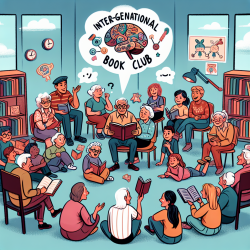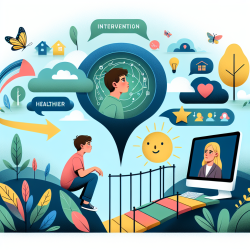Introduction
The Covid-19 pandemic has profoundly impacted mental health across the globe, with healthcare workers facing unprecedented stress and burnout. The research article "Behavioral Health for the Front Line: Lessons from the Covid-19 Pandemic" provides critical insights into how institutions can effectively support their staff through a structured, tiered approach to mental health services. This blog post explores how these findings can be applied to improve practitioner skills and outcomes, particularly in the context of online therapy services for children.
Understanding the Four-Tiered Approach
The research highlights a four-tiered "pyramid" model for behavioral health intervention, developed by Jefferson Health in Philadelphia. This model ranges from self-help resources to professional therapy, offering a scalable approach to mental health support:
- Tier 1: Self-help resources that are widely accessible, including self-care guides and skills-based education.
- Tier 2: Departmental support where managers and peers are trained to recognize and respond to mental health needs.
- Tier 3: Peer support programs providing group and individual support.
- Tier 4: Professional therapy services for those requiring specialized intervention.
Applying Lessons to Online Therapy for Children
For practitioners providing online therapy services to children, integrating a similar tiered approach can enhance service delivery and outcomes. Here's how:
- Tier 1: Develop accessible self-help resources for parents and caregivers, such as guides on supporting children's mental health and coping strategies for stress and anxiety.
- Tier 2: Train educators and school staff to identify signs of distress in children and refer them to appropriate resources.
- Tier 3: Facilitate peer support groups for parents to share experiences and strategies for managing their children's mental health needs.
- Tier 4: Provide access to professional therapy services through telehealth platforms, ensuring timely and effective intervention for children in need.
Encouraging Further Research and Development
While the four-tiered approach provides a robust framework for mental health support, practitioners are encouraged to conduct further research to tailor these strategies to the unique needs of children and their families. By leveraging data-driven insights and evidence-based practices, practitioners can continue to innovate and improve the quality of online therapy services.
Conclusion
The lessons learned from the Covid-19 pandemic underscore the importance of a comprehensive, multi-tiered approach to mental health support. By applying these principles to online therapy services for children, practitioners can enhance their skills and create better outcomes for their clients. For those interested in exploring the original research in more detail, please follow this link: Behavioral Health for the Front Line: Lessons from the Covid-19 Pandemic.










